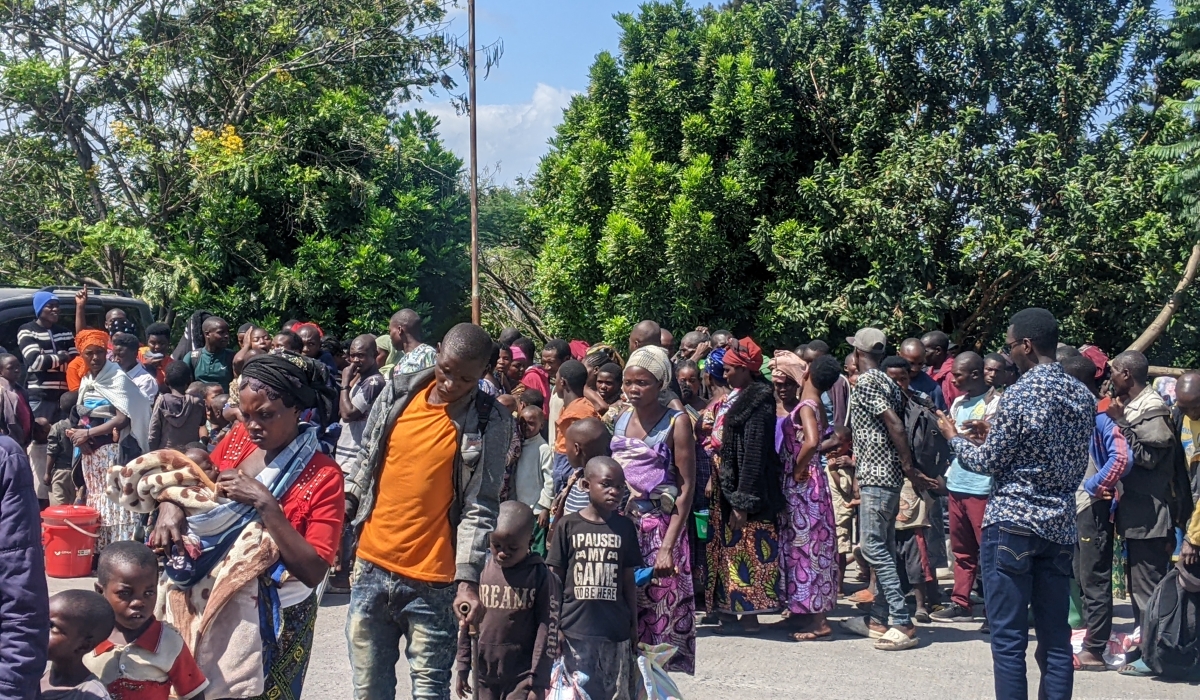
FDLR loss causes more than 300 Rwandans to flee DR Congo
The FDLR genocidal group, backed by the Democratic Republic of the Congo, has been holding up to 360 Rwandans as hostages for years. On Saturday, May 17, they went home.
At the Grand Barrière Border Post in Rubavu District, local officials welcomed the returnees, who were primarily women and small children. They then moved them to Kijote Transit Camp for screening and any assistance that was required.
In areas of the eastern Democratic Republic of the Congo’s North Kivu and South Kivu provinces, the FDLR had prevented the group and an estimated 2,500 other Rwandan citizens from going back to their homeland. After the AFC/M23 rebels, who control large areas of eastern DR Congo, defeated and drove the genocidal militia out of the area, they are finally able to make their way home.
Remnants of the 1994 Rwandan Genocide perpetrators founded the FDLR, a militia supported by Kinshasa that represents a “direct threat” to Rwanda’s security.
Furaha, a 25-year-old single mother, said she was happy to be going back to her own country even though she was born in the Democratic Republic of the Congo.
She mentioned that another member of her family will be returning home over the weekend along with another group of returnees who were planning to cross the border. “My parents are coming too, they’re just behind,” she said.
“My parents are from Rwanda, therefore I feel much safer here than in Congo. I feel secure knowing that I will see and remain with my family and relatives, so I’m no longer afraid.”
The 22-year-old Olivier Turikumwe claimed that Rubavu District is where he was born. “At the age of nine months, I traveled to Congo. I was taken there by my mom.
“We were residents of Masisi until we escaped and took sanctuary in schools under M23 protection because of the continuous conflict with the state army.”
The mayor of Rubavu District, Prosper Mulindwa, stated that “this is part of a larger repatriation effort where over 2,000 more Rwandans are expected to return home on various days.”
Our people who have been refugees in the Democratic Republic of the Congo are glad to return. Their origins are spread across the nation,” Mulindwa continued.
All Categories
Recent Posts
Tags
+13162306000
zoneyetu@yahoo.com



